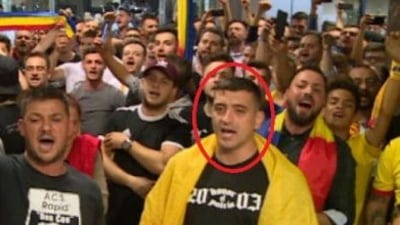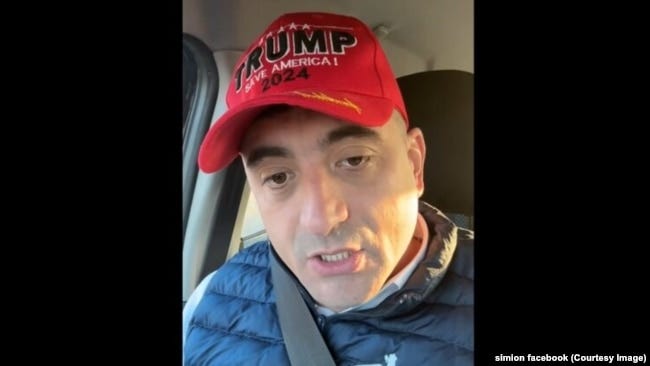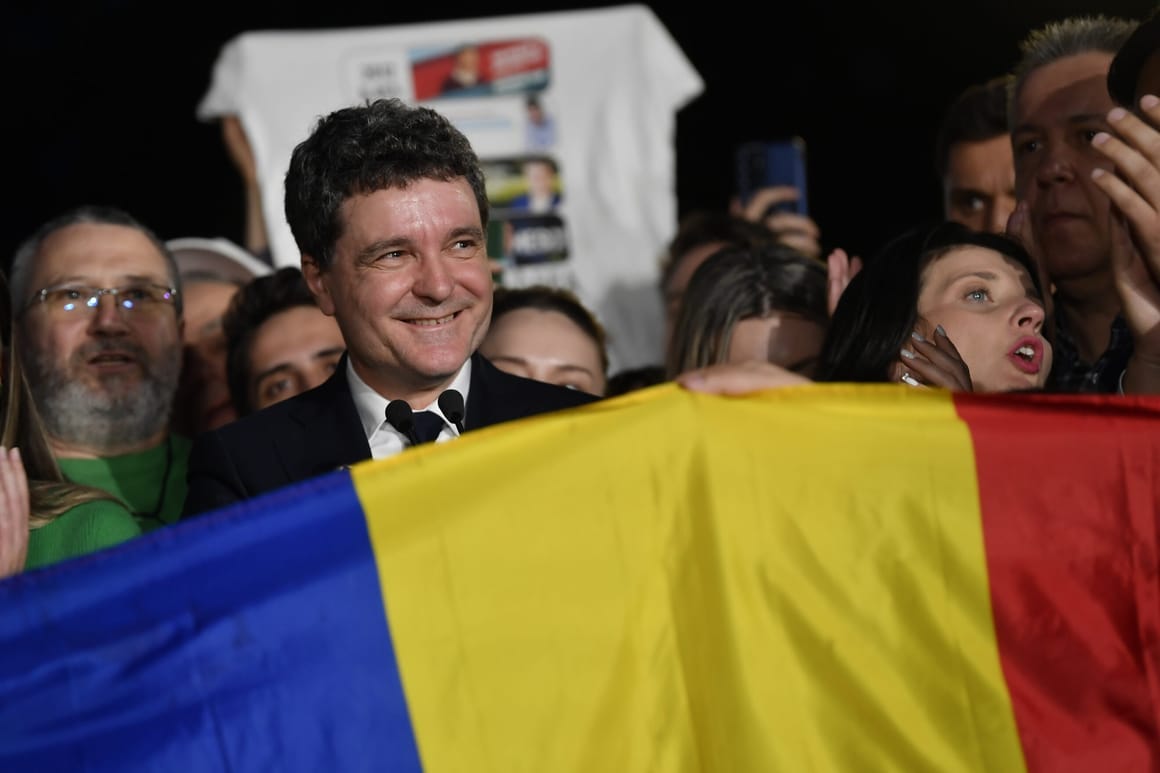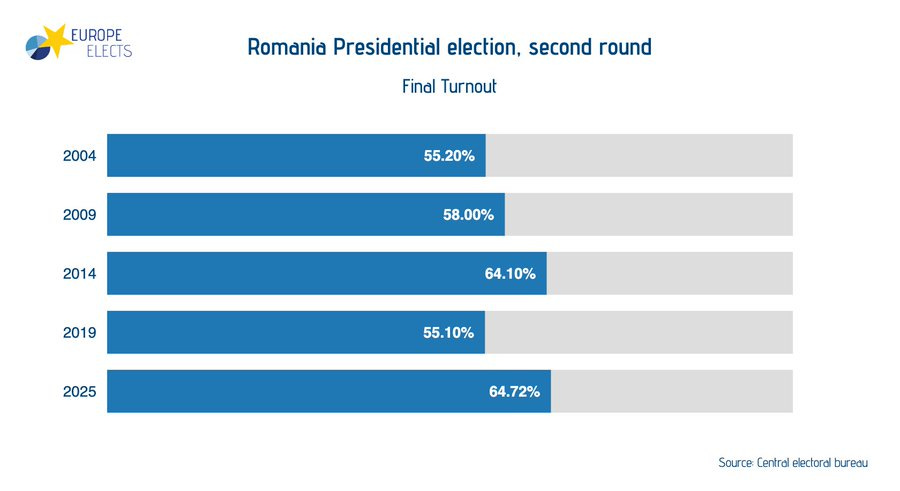A Romanian surprise
Massive turnout offers up the latest twist in the ongoing saga of Romanian politics.
Setting the scene
Anti-establishment fever has been growing for a while in Romania. In a country marred by political scandal, where over 8mn people have left for better economic opportunities, and hit particularly hard by the inflation wave of 2022, an angry populace was always going to demand political accountability.
In 2024, the year of massive global electoral change, this manifested itself in spectacular fashion when the outsider (and Putin sympathizer) Călin Georgescu shocked everyone by winning Romania’s first round of presidential voting. But before a subsequent run-off could confirm Georgescu’s political ascendence, the Romanian courts annulled the result, citing Russian subterfuge. A new election was announced for May 2025. This decision was criticized across the political landscape, including in the infamous “threats from within” speech by JD Vance earlier this year at the Munich Security Conference.
The situation was thrown further awry in March when Georgescu, leading in the polls despite being under criminal investigation, was barred from standing in the election.
The decision to block Georgescu opened the door to other politicians who could make hay with the anti-establishment message. George Simion, a former soccer hooligan and leader of the far-right AUR party who had been polling well last fall before much of his support migrated to Georgescu, seized the torch and presented himself as the clear alternative.
Prior to entering Romanian politics, Simion was a soccer hooligan.

In an effort to win over more of Georgescu’s supporters, Simion promised to incorporate Georgescu in his government, perhaps as Romania’s prime minister.
Simion’s politics can be summed up from an interview he did with Steve Bannon. Simion said his Alliance for the Union of Romanians (AUR) is “the natural [ally] of the Republican Party and we’re almost perfectly aligned ideologically with the MAGA movement.”
Simion sporting a Trump hat in an online video.

The first round: Dan emerges in second
Consistent with the pre-election polling, Simion easily won the first round of voting in May, but with just 41% of the vote, short of the 50% threshold necessary to avoid a run-off.
The question was; who would finish in second and go head-to-head with Simion?
It turned out to be the independent Nicușor Dan, a trained mathematician and current mayor of Bucharest. The comparatively soft-spoken Dan1 rose to prominence as an anti-corruption advocate prior to winning the 2020 mayoral election in the capital.
Dan’s vote share of 21% was just enough to pip Crin Antonescu, another centrist candidate, who came in third with 20% of the vote. This result was a major blow to the three members of Romania’s governing coalition in parliament, the Social Democrats, the National Liberal Party and the Hungarian minority party (UDMR), who had put forward Antonescu as their unity candidate. Immediately after the result, the prime minister Marcel Ciolacu (from the Social Democratic party) resigned from office, throwing Romania’s government into further disarray.
Interestingly, Elena Lasconi, the second-place finisher in the initial election who would have gone against Georgescu in the run-off, received less than 3% of the vote.
Pro-EU v anti-EU
Once the whistle blew confirming the Simion and Dan run-off, the race was quickly framed as a battle of pro- vs. anti-Western alliance candidates. Dan, campaigning on a promise to maintain Romania’s commitment to NATO and the EU, stated,
It’s our task to convince Romanians that Romania needs the pro-Western direction and our campaign will be focused on that in the next two weeks.
Meanwhile, Simion made it clear that he did not want Romania to leave the EU, but rather improve it.
Wanting to reform the EU does not mean wanting to leave it…We believe in a European Union that thrives as a nest for its diverse and sovereign nations—not as a rigid system enforcing one-size-fits-all policies.”
In March, Simion stuck with the European line in an interview with the Financial Times.
Putin’s Russia was and is one of the biggest threats for the European states, especially or us, for the Baltic states and for Poland. We need unity, but not just in Europe; also between Europe and the United States, we need the same approach.
Simion has said he wants a peace with security guarantees that last decades to deter Russia from any future strikes. While not explicitly ant-Europe, Simion said he didn’t want to send additional financial or military support to Ukraine, as doing so would merely extend the war without any real impact.
Sitting on the Black Sea and sharing a border with Ukraine and Hungary, Romania plays a key geo-strategic role as a base of NATO operations. From a wider perspective, the worry was that if a Euro-skeptic like Simion were president and decided to side with the more anti-Ukraine wing of the Europe (like Hungary’s Viktor Orban and Slovakia’s Robert Fico), that could spell trouble for Kyiv.
What happened in the run-off?
The independent candidate Nicusor Dan celebrating his electoral victory over George Simion.

Despite a strong initial showing, enthusiasm for Simion was drowned out by a massive swell of pro-EU, pro-Ukraine support. In the highest level of turnout in a Romanian election this century, Dan cruised to victory.

First round turnout was around 53%, but surged to nearly 65% in the second on the back of an additional 2mn people casting their vote.
The second round vote had the highest participation of any recent Romanian election.

This meant that, while Simion was able to consolidate support from the other far right candidate (the independent Victor Ponta, who finished fourth in the first round, had visited Mar-a-Lago earlier in the election cycle to burnish his credentials), this was not enough to counter the massive influx for Dan that came from increased turnout.2
Results from the first and second rounds of voting.

After Simion initially went on social media and declared “I am the new president of Romania,” he subsequently backtracked, conceding to Dan and saying the result was “the will of the Romanian people.”
The massive turnout in the second round suggests Romanians are interested in keeping close ties to its western-based multilateral alliances, most notably the EU and NATO, rather than give up on them and turn inward.
Dan, who one analyst notes is politically aligned with the German CDU, now enters office under unenviable circumstances. It is incumbent on Dan to appoint a prime minister and form a new government to move Romania past the political turmoil of the past six months. But this will not be easy. Simion’s AUR is the second-largest bloc in the Chamber of Deputies (Romania’s version of parliament), and will not be joining a centrist government. Supposedly Dan would like to name the interim president, Ilie Bolojan of the National Liberal party as prime minister, but will the Social Democrats allow this?
Distribution of seats in Romania’s current legislature. The Social Democrats have the most seats (86), while the far-right AUR is second (63).

More broadly, Romania also has the largest budget deficit in the EU, which is demanding the government implement a more austere budget if the EU is going to continue to provide funds.
*******************
What does this all mean? It depends on your perspective.
The optimistic take is this is the latest example of the far-right parties being warded off by the voters. Romania’s election was always going to be about domestic change, and the result was indeed dismal for the traditional parties who only won 20% in the first round. But rather than toss aside its international commitments, the electorate confirmed its desire to play a role within the EU and NATO.
On the other hand the far-right was clearly the top choice in the first round and garnered 46% in the second, so there is definitely some enthusiasm for Simion’s message. And Dan now enters office with an in-tray of issues that will be incredibly difficult to navigate; an economy that is teetering under heavy debt (with the EU demanding austerity policies that are never politically popular), a broken parliament, and an ongoing conflict in a border country.
If Dan is not able to steady the ship, this election may have been just a temporary reprieve before Simion (or someone similar) ascends to power in 2028.
If you enjoyed this edition of Nuance Matters, consider letting me know by buying me a cup of coffee!
Cheers!
He founded the Save Romania Union party in 2016 before leaving the party in 2017.
One point of note is that Dan won large majorities in counties dominated by ethnic Hungarians. When you consider Hungary’s prime minister Viktor Orban’s support for illiberal democracy and his anti-EU, anti-Ukraine positions, the natural inclination would be this support lines up perfectly with Simion. And, indeed, Orban did support Simion.
But reality is much more complex.
These Hungarians may support Orban, but the Hungarian party in Romania actively backed Dan, citing Simion as actively hostile to ethnic Hungarians. In the lead-up to the election, the leader of Romania’s ethnic Hungarian party, which has close ties to Orban’s political party, called Simion “an illusionist” and a “charlatan, not a Christian. Every neuron in his body wants to displace Hungarians in Romania.”




